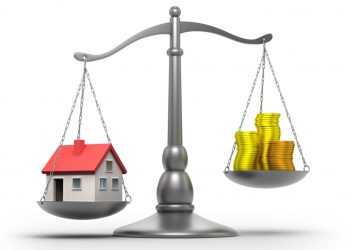The decision to buy a second property brings a host of considerations, and one of the most crucial among them is whether to sell or rent your existing home. This dilemma requires careful evaluation of financial, emotional and strategic factors to ensure that the choice aligns with your goals and circumstances.
We will explore renting vs selling a house and the key considerations involved in making this decision, providing you with the information needed to navigate this complex choice effectively.
Understanding your motivations
Financial goals play a significant role. Selling may be the logical choice if you need substantial equity to afford the new property. On the other hand, renting may be more suitable if you desire a long-term income stream and are willing to become a landlord.
Consider potential tax implications as well, as each option carries different consequences for your financial situation.
Emotional attachment to your current home is another factor to weigh. If your home holds cherished memories and sentimental value, renting may allow you to maintain a connection with the property.
Conversely, selling may be the right choice if you’re ready for a fresh start and unencumbered by emotional ties. Plans should also be considered, such as the likelihood of returning to your existing home or incorporating it into an investment strategy for future rentals.
Exploring the selling option
When contemplating the sale of your current home to finance the acquisition of a second property, it is imperative to examine the intricacies of this option.
While selling offers immediate financial benefits, several aspects require careful consideration.
Pros:
- Access to capital: The primary advantage of selling your home is instant access to a substantial lump sum of capital. This can be a game-changer. The sale will provide the necessary funds for a down payment on your new property.
- Freedom from landlord responsibilities: Selling your property liberates you from the responsibilities of being a landlord. No longer will you need to handle tenant issues, property maintenance, or repairs. This can simplify your life. It allows you to focus on your new property without the day-to-day challenges of property management.
- Simplified financial situation: Owning just one property simplifies your financial situation. With the proceeds from the sale, you can streamline your investments and financial portfolio. It reduces complexity and administrative overhead.
Cons:
- Emotional detachment: One of the major downsides of selling your house is the emotional detachment from the property. If your home holds sentimental value and cherished memories, parting with it may be emotionally challenging.
- Market uncertainty: The housing market can be unpredictable, and the speed at which your home sells may be influenced by factors such as economic conditions and local market trends. Selling quickly may not always be guaranteed, adding an element of uncertainty to the process.
- Potential capital gains taxes: Depending on the jurisdiction and the time you’ve owned the property, you may be subject to capital gains taxes. This can eat into your sales profits and needs to be factored into your financial calculations.
Exploring the selling option necessitates a balance between financial gain and emotional considerations. Assessing your readiness to part with your current home and navigating potential challenges in the housing market is crucial.
Analyzing the renting option
Opting to rent out your current home rather than selling it introduces a different set of dynamics that warrant thorough analysis. While renting offers the potential for a steady income stream and long-term investment, it also comes with responsibilities and considerations.
Pros:
- Passive income generation: One of the most significant advantages of renting is the potential for a passive income stream through regular rent payments. This income can contribute to covering mortgage payments on your current property or support your financial goals.
- Potential for property appreciation: Real estate has historically demonstrated appreciation over time. By retaining ownership of your home and renting it out, you may benefit from potential increases in property value. It can lead to long-term financial gains.
- Hedge against inflation: Real estate is often considered a hedge against inflation. As the cost of living rises, so do property values, providing financial security and stability.
Cons:
- Landlord responsibilities: Becoming a landlord entails various responsibilities, including advertising the rental property, tenant screening, property maintenance, and addressing repair issues promptly. This can be time-consuming and may require commitment and expertise in property management.
- Risk of vacancies and lost income: Rental properties may face vacancy periods, leading to potential income loss. Finding reliable tenants can also be challenging, and the income generated may be sporadic.
- Ongoing property management fees and legal issues: Engaging in property rental involves ongoing management fees, which can impact your overall return on investment. Moreover, legal issues related to landlord-tenant relationships may arise, requiring your attention and potentially additional expenses.
Additional considerations
As you decide whether to sell or rent your home when acquiring a second property, additional factors transcend each option’s pros and cons. These considerations play a crucial role in shaping your overall strategy and ensuring the success of your real estate endeavors.
Local market conditions
The local real estate market is a dynamic ecosystem that can significantly influence the feasibility of selling or renting your property. Consider aspects such as:
- Supply and demand: Assess the demand for rental properties and the supply of homes in your area. A high demand for rentals may make renting a lucrative option, while a buyer’s market may impact your ability to sell quickly.
- Rental rates: Investigate current rental rates in your locality to gauge the potential income from your property. Compare these rates to your mortgage and property maintenance costs to determine the financial viability of renting.
- Property values: Examine the trend in property values in your area. If values are upward, holding onto your property and benefiting from appreciation may be attractive.
Condition of your current home
The state of your current home is a critical factor in determining its marketability for rent. Consider:
- Renovation needs: Assess any necessary renovations or improvements to make your home more appealing to potential tenants. Upgrading the property can enhance its rental value and attract quality tenants.
- Marketability: Evaluate how marketable your home is in its current condition. A well-maintained property will likely attract better tenants and command higher rental rates.
Personal tolerance for risk
Being a landlord involves inherent risks, and your ability to handle these risks plays a significant role in the success of renting your property. Consider:
- Potential issues: Assess your willingness and capacity to deal with potential issues such as property damage, late rent payments, or unexpected vacancies.
- Financial resilience: Ensure you have financial reserves to cover unforeseen expenses related to property maintenance or vacancy periods.
Seeking professional advice
Real estate decisions, especially those involving significant financial investments, benefit from the expertise of professionals. Consider:
- Real estate agents: Consult with experienced agents who can provide insights into market conditions, property values, and the demand for rental properties in your area.
- Financial advisors: Seek guidance from financial advisors to understand the long-term financial implications of selling or renting, including potential tax consequences.
Legal experts: Engage legal experts to ensure you comply with local landlord-tenant laws and regulations. This can help prevent legal issues that may arise during the rental process.













Bill, thanks for another solid article that was a pleasure to read!